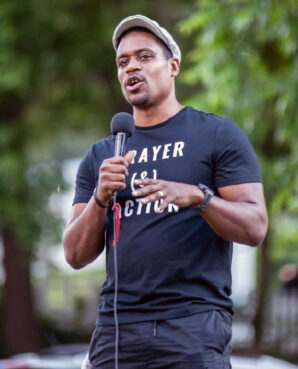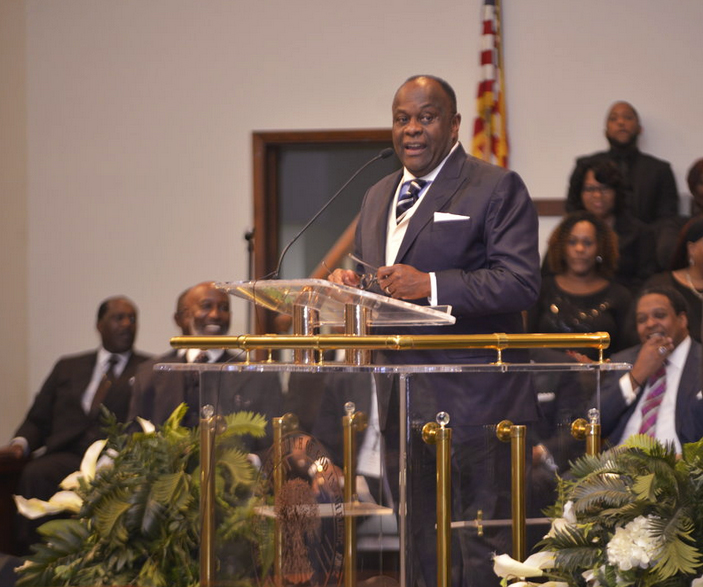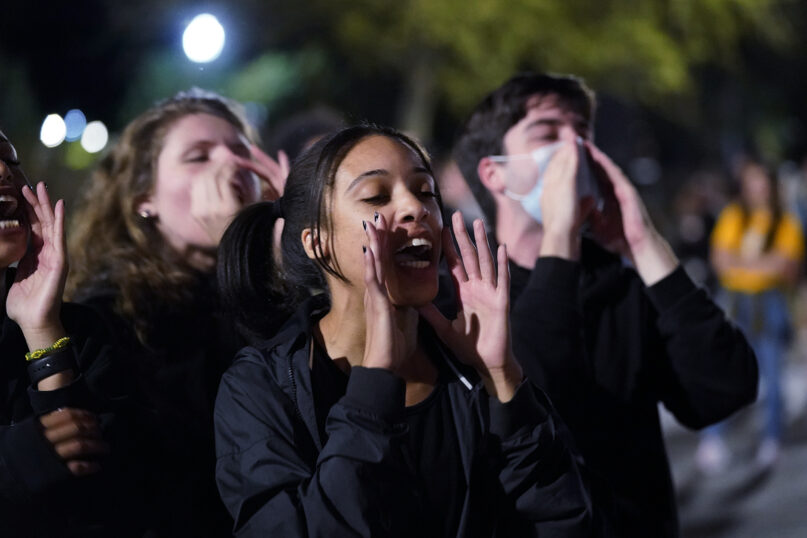(RNS) — In Black churches, the reaction to the leaked Supreme Court draft opinion on abortion boils down to education and mobilization.
Jacquelyn Dupont-Walker, social action commission director of the African Methodist Episcopal Church, said her historically Black denomination will continue its long involvement in getting voters to the polls. But now, if Roe v. Wade is likely to be overturned, she said there is also an urgency around personal messaging, to help people understand what it means for them and for where they live.
“Roe v. Wade made it possible for poor women and women of color to have access to services other women would just find because they have the means to travel to get the services,” she said. “So, for us, it means activate the base so people don’t think I now have to go and get the coat hanger when I live in California.”
Word must be spread, she said, that an overturning of Roe will have different results across the country.
“The fact that there is a decision at the Supreme Court level doesn’t all of a sudden dictate what can happen in your local jurisdiction,” said Dupont-Walker, who lives in the Golden State, where abortion access is unlikely to change if Roe is overturned.
Four women leaders of the AME Church’s Health Commission issued a statement Tuesday (May 3), saying “We cannot remain silent,” echoing the need to rally in response to the expected court decision.
“We must encourage healthcare advocacy from the sanctuary to the senate,” said the women, including Bishop Francine A. Brookins, the commission’s chair, in the statement. “We must remove the shame surrounding reproductive issues by discussing them in the bible studies and preaching about them in the pulpit. We must pray up, then stand up and speak up!”
RELATED: Roe v. Wade: Faith leaders react to leaked SCOTUS opinion
Black churchgoers — and African Americans more widely — are not monolithic in their perspectives on abortion. The Pew Research Center noted in a 2021 report that 8 in 10 religiously unaffiliated Black Americans say abortion should be legal in most or all cases, in contrast with 7 in 10 Black Catholic church attenders, about two-thirds of Black Protestants who worship in Black churches and about half of Black Protestants who attend white churches or congregations predominated by another race.

Justin Giboney speaks during a racial justice demonstration in Atlanta. Photo courtesy of the Prayer & Action Justice Initiative
But a reversal of the nation’s highest court on abortion is not likely to sway Black church members to lean more Republican or Democratic as midterm elections draw near, predicts Justin Giboney, president of the AND Campaign.
For many Blacks, he said, abortion is not a primary issue, but he suggested that an emphasis on Judge Ketanji Brown Jackson being named to the court could be “more of a motivator than Roe.”
Giboney said he supports the direction the high court seems to be headed because he thought “Roe, at some point, needed to fall.” But he added that such a ruling is not sufficient.
“I also thought through it and I didn’t have the kind of triumphalism you hear from a lot of folks, because I think it’s insufficient when it comes to the whole issue,” said Giboney, a lawyer and activist who is based in the Atlanta area.
He said Black churches like the one he attends will need to continue to advocate for policies about child care, health care and paid family leave that can alleviate some of the reasons for women’s decisions to seek abortion. The author of “Compassion (&) Conviction: The AND Campaign’s Guide to Faithful Civic Engagement” said he also hasn’t seen conservatives find an answer to reducing maternal mortality rates.
“I think for a lot of folks in the Black church it’s going to mean making sure we continue, and maybe even redouble, our efforts to advocate for those policies that help women stay out of those crisis situations.”
President Joe Biden, reacting in a statement to the possibility of an overturn of Roe, said: “At the federal level, we will need more pro-choice Senators and a pro-choice majority in the House to adopt legislation that codifies Roe, which I will work to pass and sign into law.”

The Rev. W. Franklyn Richardson. Photo courtesy of Jenise Richardson
The Rev. W. Franklyn Richardson, chairman of the Conference of National Black Churches, said a push for such legislation could prompt the “awakening” strongly needed in the African American community as the midterm elections approach.
“This could turn out to be a great motivator for people who are sitting by the side, saying it doesn’t matter what happens,” said Richardson, who also is chairman of the Rev. Al Sharpton’s National Action Network. “I think it will mobilize people like nothing else. I’m expecting great mobilization of the African American community and in communities where people recognize the importance of giving a person a choice.”
Beyond mobilizing people for the midterms this year, Dupont-Walker said the pending high court decision about the status of Roe could prompt Black church leaders to encourage more people to run for office in 2024.
“I also hope people will offer themselves for service,” she said, noting it could spark religious involvement in elections and in elected seats in ways conservatives achieved starting in the 1970s. “So if they seek public office, then we have a majority of people of a certain persuasion, just like the Moral Majority did.”
RELATED: Before there was Roe: Religious debate before high court’s historic ruling on abortion





